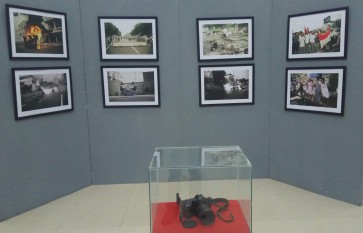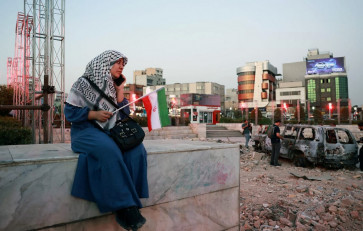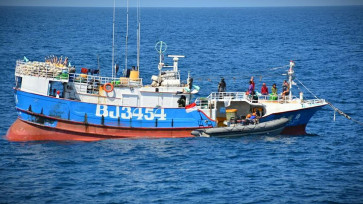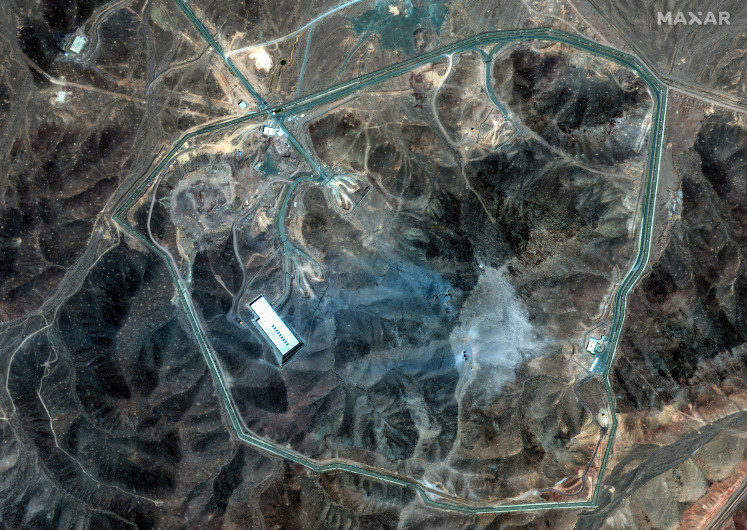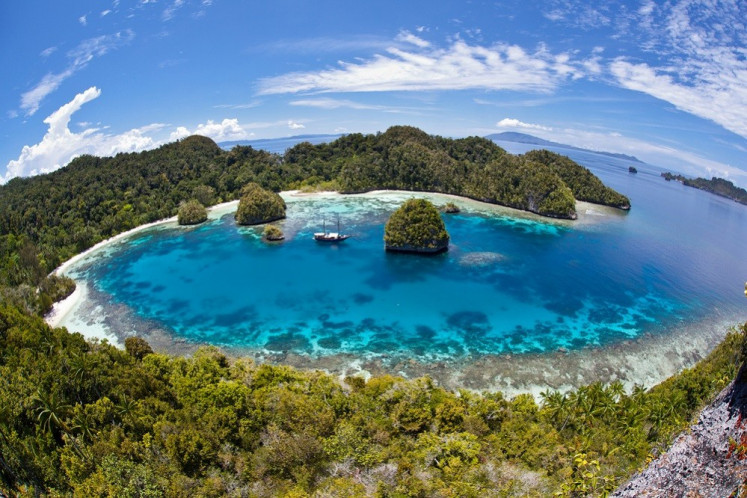Popular Reads
Top Results
Can't find what you're looking for?
View all search resultsPopular Reads
Top Results
Can't find what you're looking for?
View all search resultsGreater political will critical for progress on renewable energy: Experts
An uncertain investment climate and a lack of political commitment might hamper clean energy development in Indonesia next year, a think tank warns.
Change text size
Gift Premium Articles
to Anyone
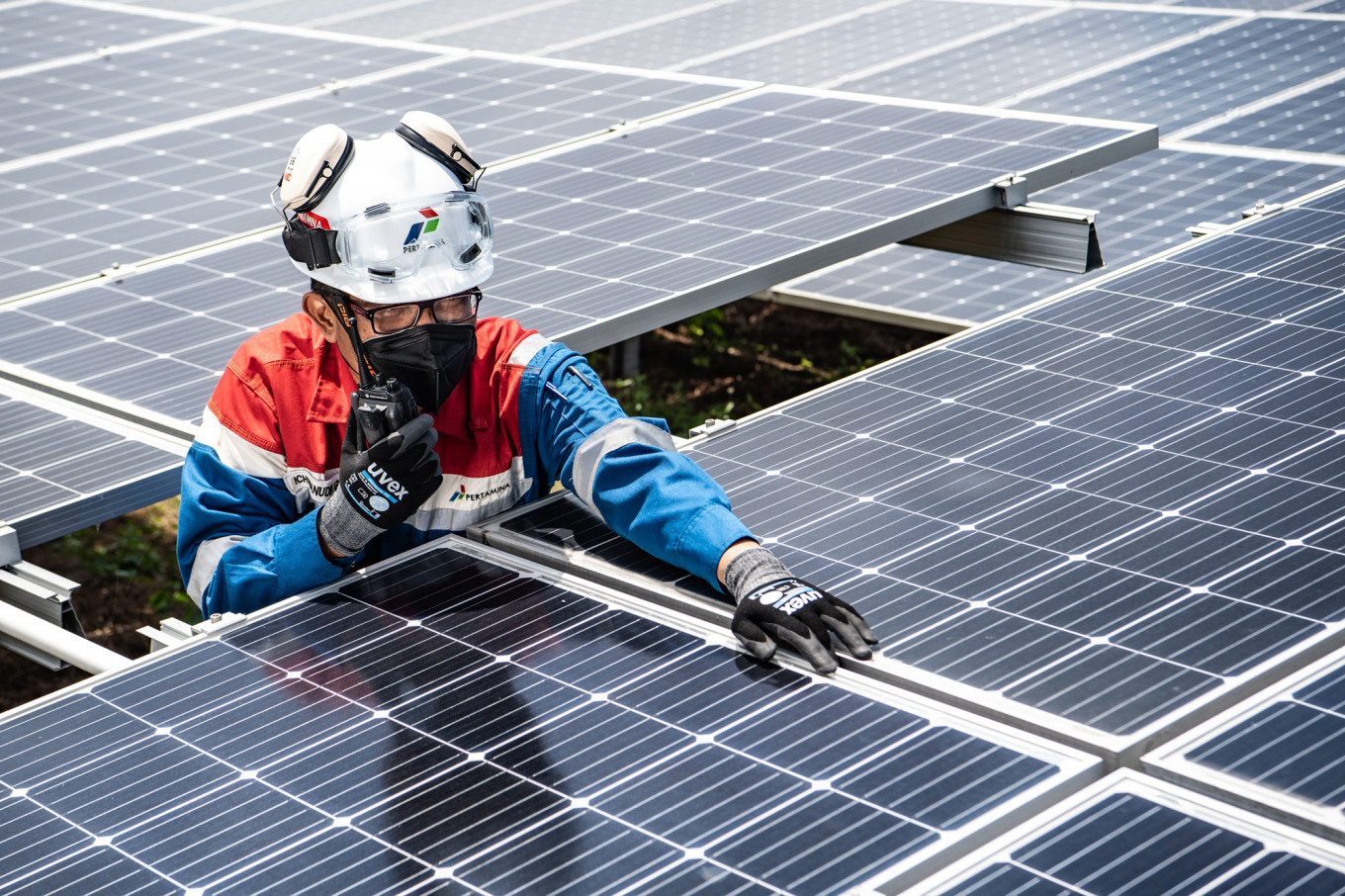
U
ncertainty about the investment climate and a lack of political commitment might hamper renewable energy development in Indonesia next year, a think tank has warned.
The Institute for Essential Services Reform (IESR) notes in its report Indonesia Energy Transition Outlook 2022 that the current policy and regulatory framework does not reflect a strong commitment to decarbonization in the energy sector.
“This year shows improving political commitment but it has not yet translated into implementation and improvement of key energy policy documents that guide sector planning [and] development,” the IESR said in the report, which showed that the level of political will in Indonesia remained “low” in 2021.
The IESR went on to say that current energy policies had yet to provide a sense of security for developers to invest in new and renewable energy (NRE).
As a result, NRE investment had missed the target set for this year, the report claimed. Specifically, Energy and Mineral Resources Ministerial Regulation No. 10/2017 on the utilization of renewable energy sources for power generation and Regulation No. 50/2017 on NRE utilization for electricity generation render NRE projects unbankable, according to the report.
“The government needs to focus on improving the quality of regulations to increase investment attractiveness and reduce licensing barriers,” IESR executive director Fabby Tumiwa said at the launch of the report on Tuesday.
Read also: Painstakingly slow progress on renewable energy infrastructure
National Energy Board (DEN) member Herman Darnel Ibrahim concurred with the IESR, saying that there had not been enough improvements in planning, regulation and implementation this year. He added that NRE power capacity needed to grow exponentially to reach the targeted 23 percent NRE share in the national energy mix by 2025.
“As of today, there is still no sign of that growth. This means it will be even more difficult to reach the net-zero goal by 2060,” Herman said, speaking at the same event.
Surveying 13 renewable energy developers and four banks operating in Indonesia, the report assesses basic indicators including policy alignment with the Paris Agreement, public finance allocation and policy target implementation to gauge political will and commitment levels in Indonesia, which are then categorized as low, medium or high.
In the last five years, the power generation capacity of NRE plants has increased by 1,469 megawatts, marking an average annual growth rate of 4 percent. This figure is less than half of the 3,000 MW annual capacity increase needed for NRE to make up 23 percent of the national energy mix by 2025, data from the IESR show.
Indonesia needed to add 14 gigawatts of NRE power generation capacity from 2020 to 2025, Fabby said, which meant the country would still have to increase capacity by 13 GW in the next three years.
Read also: New power plan projects slower demand growth, more renewables
Dannif Dhanusaputro, CEO of Pertamina NRE, a subholding company under state-owned oil and gas company Pertamina, said NRE policy planning had to be more accurate and connectivity had to improve, so that renewable energy supply and demand could be evenly distributed among regions.
“The NRE potential in Indonesia is tremendous for developers. What [developers] need are affirmative and supportive policies,” he said.
Verania Andria, a senior advisor on sustainable energy at the United Nations Development Programme (UNDP), said the government had utilized international momentum to create new policies in support of NRE.
“The question is whether they can choose policies to prioritize, so as to best increase NRE investment, energy efficiency and reduce fossil fuel utilization,” she said.
In September, the total installed capacity of NRE was 10,827 MW, up just about 400 MW from a year earlier.
To decarbonize Indonesia's energy system covering power generation, transportation and industrial consumption by 2050, meanwhile, at least 11 to 13 GW of additional renewable energy generation capacity is needed, according to the IESR report.

